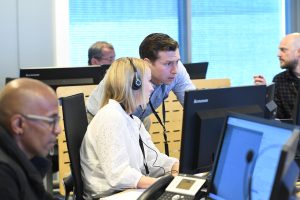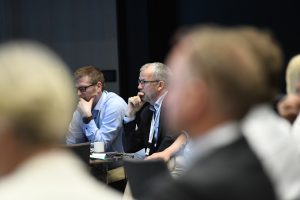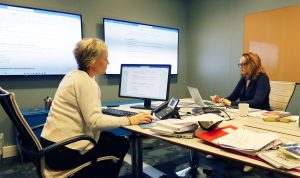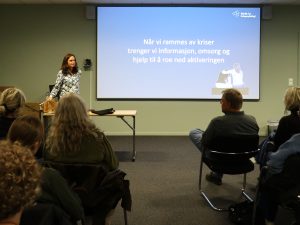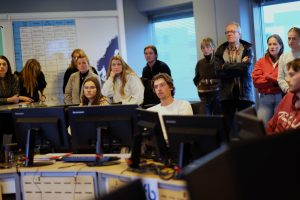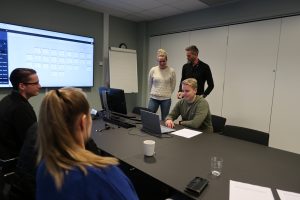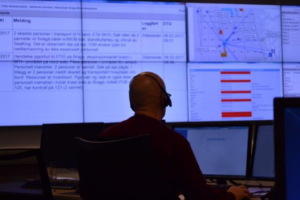Text: Alf Inge Molde
Jakob Inge Kristoffersen has worked as a psychologist for more than 40 years. He possesses decades of experience from major accidents and disasters, and the training and follow-up of emergency personnel, both in Norway and abroad.
On Wednesday the 30th of November, the specialist from Clinic for crisis psychology in Bergen, of which OFFB has had a collaboration agreement for a number of years, shared his expertise with the participants gathered at the Competence Centre.
Kristoffersen talked about incidents which have stuck in the collective memory of the Norwegian people over the recent decades. When asked about the emotional reactions among emergency personnel, he admitted that tears may flow, even on his cheeks, when faced with people who have been exposed to the worst horrors imaginable.
“I have never been criticised for this. So I suppose it is OK, even for less experienced personnel, to react emotionally. But if one manages to stay focused on the tasks at hand, it helps keep the impact of the tragedies at bay,” Kristoffersen says.
Further reading: Looking after people affected by crises
Facts, not feelings
A gathering of 50 people with various emergency management tasks within OFFB and the oil and gas companies were introduced to how they should prepare for the handling of critical incidents, acute and long-lasting stress reactions, management and follow-up, principles for psychological first aid, taking care of those affected and their next of kin, psychological preparedness planning, lessons learned at the centres for evacuees and next of kin, consequences for the company and its employees, and how to be prepared – on an individual level and as a team and a company.
Many are afraid of making mistakes when interacting with those affected and their next of kin. But the worst thing one can do is to do nothing. In general, people rarely do anything that is totally wrong, Kristoffersen reassures.
During the initial stages after a critical incident, it is vital that the survivors and those affected are looked after – for instance at a reception centre or a centre for evacuees and next of kin – where they can feel safe, and are allowed to wind down and thus reduce the stress.
To reduce stress immediately after an incident is essential. The professional term for this is activation.
“Good and factual information is more important than talking about feelings. One should delay the verbal expression of thoughts and emotions. It is much better to ask about what happened, and what the person has done,” he advises.
People react very differently to crises. Most individuals stay calm. Experience also shows that the number of people affected by incidents is usually much higher than expected. Far more people than we imagine are often impacted by critical incidents.
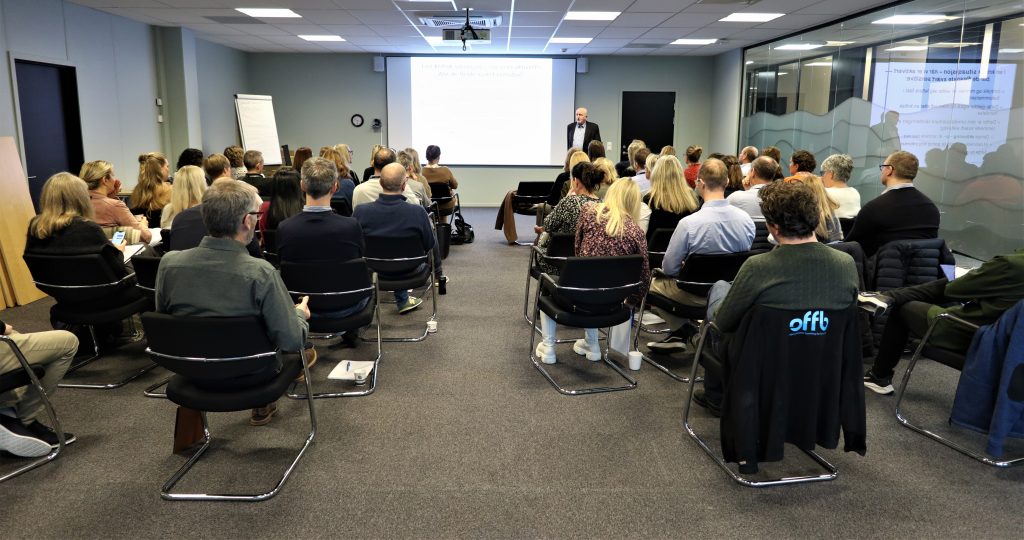
The paradox of support
When critical incidents occur, large resources are usually mobilised in the early stages to take care of those affected and their next of kin. This is good. But as time goes by, the need for support often increases, while the availability of support and aid decreases.
“Experience from the last 20 years shows that the need for help and support stretches over a long period of time. Which means that help must continue to be available,” says Kristoffersen.
According to the psychology specialist, many companies have assigned a next of kin contact person as a liaison between the company and the affected families. This is a good thing. But these contacts need initial training, to prepare and equip them for conducting their role.
It is especially important that people within the companies – both colleagues and managers – are aware of their existence. And all parties must be aware that their tasks demand time, and will take up some of their working hours.
“For how long should they conduct this role? Three weeks? No, the time horizon should be one year,“ Kristoffersen says.
Taking their responsibility seriously
Head of the Competence Centre, Dag Normann Aasjord, is very pleased with the interest shown for attending the course. In his opinion, it demonstrates that the handling of reactions to crisis incidents is a relevant subject to OFFB’s members.
“The content of the course is of direct relevance to the safeguarding of personnel involved in incidents and crises, and our members are taking their responsibility seriously. We have a good collaborative partnership with the Clinic for crisis psychology, and Jakob Inge Kristoffersen has a long and unique experience,” says Aasjord.
Courses offered by the Competence Centre are also good arenas for exchanging experience, and the members take the opportunity to make contact with each other during the breaks.
Further reading: OFFB’s Competence Centre


